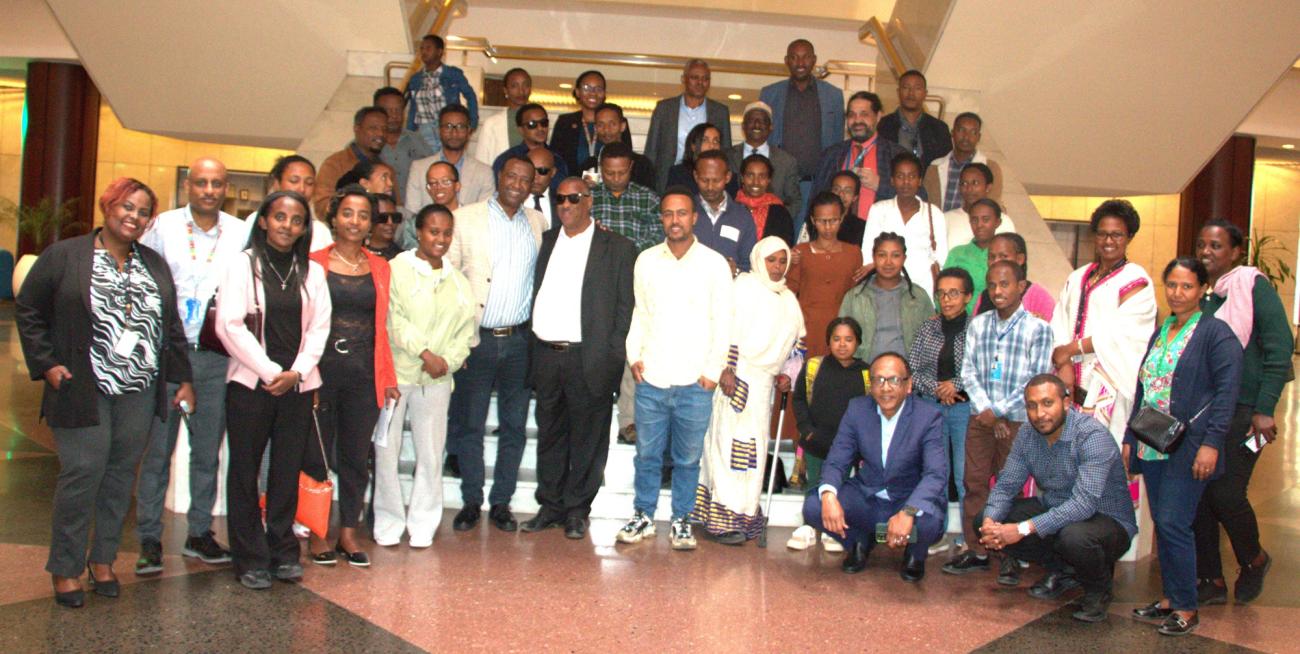International Day of Persons with Disabilities marked with a call to accelerate efforts to ensure disability inclusion

The International Day of Persons with Disabilities -"Amplifying the leadership of persons with disabilities for an inclusive and sustainable future"
The United Nations in partnership with partners commemorated the International Day of Persons with Disabilities under the theme "Amplifying the leadership of persons with disabilities for an inclusive and sustainable future"
In Ethiopia, it is estimated that 17.6% of the population lives with some form of disability. Despite this significant number, persons with disabilities remain underrepresented in education, employment, and healthcare.
Speaking at an event organized to commemorate the Day, UN Assistant-Secretary General UN Resident and Humanitarian Coordinator, Dr. Ramiz Alakbarov, said, “This year’s theme calls on us to create spaces where persons with disabilities are not just included, but are leading the way—shaping the decisions that affect their lives and our shared future.”
“Persons with disabilities in Ethiopia also disproportionately bear the brunt of crises—whether it is ongoing conflict, the devastating effects of climate change, public health emergencies, or economic inequalities. Yet, despite these challenges, their voices are often absent from the decision-making processes that shape their lives,” he said.
“Persons with disabilities are not a homogenous group,” he said. “They are individuals with unique talents, hopes, and dreams. Yet, they often face systemic barriers that prevent them from fully participating in society.”
The challenges are even greater for women, children, and other marginalized groups, who face multiple layers of discrimination. For example, the enrollment rate for children with disabilities is less than 12%, with many facing stigma, inaccessible schools, and a lack of appropriate teaching materials. These barriers perpetuate cycles of poverty and exclusion.
Partners that joined the UN to commemorate the Day also highlighted key challenges and collective efforts needed to address the challenges facing persons with disabilities.
In a panel discussion organized as part of commemorating the Day, ECCD and Light for the World , highlighted some of the challenges facing persons with disabilities in Ethiopia.
Poor quality of data on persons with disabilities, low-level of awareness among different actors, inaccessibility of infrastructure (physical and digital), insufficient funding for programs supporting persons with disabilities, deep-rooted stigma and discrimination, fragmented laws and policies and limited capacity of associations of persons with disabilities as well as limited employment opportunities were mentioned as some of the major challenges.
Deputy Country Director for Light for the World, Suadik Hassan, said that his organization has been implementing a Community-Based Rehabilitation (CBR) approach to reach out to persons with disabilities and address their challenges including health and education. In addition to advocating for a Disability Act by supporting relevant government ministries, the organization has been organizing community conversations and public meetings to tackle the stigma and discrimination.
ECCD, Program Director, Legassu Leulseged, noted that his organization has been pursuing a multi-sectoral approach focusing on the rights of persons with disabilities, livelihoods, health, education, social Inclusion and protection.
The Program Director said his organization has been engaged the legislative organ of the government by providing trainings to members of the parliament to advocate for disability inclusion across different sectors and promote inclusion and accountability at different levels of law making and decision making as well as implementation of laws and policies.
Advocating for the enforcement of the Convention on the Rights of the Child, addressing the special challenges of women persons with disabilities as well as persons with disabilities in the humanitarian setting, engaging the private sector as well as supporting parents and families of persons with disabilities were also discussed in the panel discussion.

















